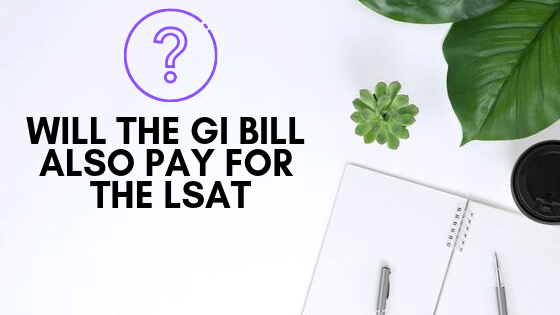Are you a veteran who wants to earn a law degree? Well, you're in luck. Many veterans become attorneys by using their GI Bill for a graduate school program, such as law school.
In this post, I'll show you the complete guidelines on how to use your GI Bill benefits to earn a law degree.
We also included a direct link to a list of the top accredited universities that offer law school for free.
You will find out how to apply, so the bill covers your book expenses, housing, as well as testing fees and stipend or allowance. Plus tips on how to choose the right law school for you!
You might have heard of the Yellow Ribbon Program, too. So we compiled everything you need to know if you are a veteran and looking for ways on how to go to law school for free.
What Is The GI Bill?
Also called the Servicemen's Readjustment Act of 1944, also known as the GI Bill of Rights, this law helps qualified veterans and their families get money to cover all or some of their school expenses from the Department of Veterans Affairs.
The most common is the Post-9/11 G.I. Bill that covers 100% tuition fee at a public university, while it pays up to $23,805.34 each year for private universities.
Other types are Montgomery GI Bill Active Duty (MGIB-AD), Selected Reserve (MGIB-SR), Vocational Rehabilitation and Education Program (VR&E), Survivors' and Dependents' Educational Assistance Program (DEA), and Reserve Educational Assistance Program (REAP).
Can I Use the GI Bill for Law School?
You can absolutely use the GI Bill to pay for law school. First of all, make sure you are eligible to use the GI Bill; then pick a law school to accept you as a student. Before entering any university law school program, you need to take the Law School Admissions Test or LSAT, which costs about $190, which the GI Bill will pay for. Once accepted, the GI Bill will pay for 100% tuition at a public university, while it pays up to $23,805.34 each year for private universities. You will also likely qualify for books, stipend, and a housing allowance.
How Much Money Can I Get For Law School?
The annual tuition fee for law school in a public university ranges from $12,838 to $63,700. Whereas, private universities cost $25,254 to $69,916.
If you're going to a law school at a public university, the GI Bill will cover 100% of your tuition.
If you're going to a private law school, it will only cover up to $23,805.34 each year.
Though the GI Bill doesn't offer 100% tuition reimbursement for private universities like Harvard and Duke, the Yellow Ribbon Program acts as an add-on that helps to cover the total amount. Click here to check if your target school qualifies for the Yellow Ribbon Program.
To figure out how much you would have to pay out of pocket for a private university law school, here is an extensive table that shows you top ranking law schools, and detailed yellow ribbon numbers.
Books and supply allowance is up to $1,000 per year. Healthcare is also free, through the school or the VA. Monthly Housing Allowance (MHA) is up to $3,012 monthly.
How to Check If You're Eligible For the GI Bill
According to VA, you can be eligible as a GI Bill recipient if you meet one of the following requirements:
1. Served at least 90 days on active duty, whether with breaks or continuous on or after September 11, 2001.
2. You have received a Purple Heart on or after September 11, 2001, and were honorably discharged after any amount of service.
3. Served for at least 30 consecutive days without a break on or after September 11, 2001, and were honorably discharged with a service-connected disability.
4. You are a dependent child using benefits transferred by an eligible Veteran or service member.
The Yellow Ribbon Program for Law School
The Yellow Ribbon Program covers your education expenses that the GI Bill doesn't. It pays higher tuition fees at a private school or your costs as a non-resident student in a public school.
To be eligible, you must qualify for the maximum benefit rate of the 9/11 GI Bill.
One of the top law schools in the country, Harvard Law School, is also participating in the full tuition fee benefit through the GI Bill and Yellow Ribbon Program. These privileges allow living expenses covered for each academic year that includes a housing allowance, and book stipend.
To take advantage of the Yellow Ribbon program, follow these steps:
1. Apply for Post-9/11 GI Bill here.

2. It takes 30 days for the VA to decide. Once you are eligible, you will receive a Certificate of Eligibility (COE).
3. Bring your COE to your school and ask to apply to the Yellow Ribbon Program.
4. Your school will decide based on:
- Whether it has already reached the maximum number of enrollees under this program; or
- How much financial support you will receive.
They will add up all your education fees less any grants, scholarships, and Post-9/11 GI Bill funding. The Yellow Ribbon Program will cover any remaining balance.
5. You will receive a notice from your school if you are qualified as a recipient of this program and how much money you will receive for your tuition fee.
What Schools Can I go to for Law School?
Choosing a law school is a significant stage that you go through to be a competitive attorney. Going to one of the top universities enables you higher chances of employment after graduation.
Obviously, school tuition fees can vary significantly. Fortunately, the GI Bill and the Yellow Ribbon Program help you achieve your dream of becoming a lawyer.
You can pick any university you wish to, and if it's a private university, make sure it participates in the Yellow Ribbon Program (to minimize your out of pocket cost).
Click here to see 120+ law schools that are VA certified for the GI Bill. You can also check out this updated list of institutions near you by going to the VA website.
Does GI Bill Pay for the LSAT?

Now that you are eligible for the GI Bill and ready to go to law school, the next step is to take the LSAT.
The Department of Veterans Affairs, through the GI Bill, will pay for your LSAT.
Thankfully, there is no limit on the number of tests until you pass.
The following are the GI Bill approved tests and fees, which are usually necessary to enroll in law school:
1.Registration fees
2. Fees for specialized tests (like the LSAT)
3. Administrative fees
For the refund of the testing fee, complete the Form 22-0810 or Reimbursement of National Exam Fee and mail it to your nearest VA regional processing office for reimbursement.
Picking the Right Law School as a Veteran
Picking a military-friendly law school is one of the most important decisions while on your path to becoming an attorney.
Remember that you have to study at this particular university for a few years, so it's best to choose the one that you are most comfortable with.
So we listed some factors below to consider, in hopes to help you narrow down your search for the most suitable school for you:
- First of all, Does the school have dedicated veteran programs? Do they participate in the Yellow Ribbon Program? Do they have a significant number of veteran students?
- Tuition fees! As a veteran, do your benefits pay all the costs for this school? Is it public or private?
- Accepts ACE credit transfer which can convert some of your previous military experience and training into full-fledged college credit.
- Applies the 8 keys of success that the Departments of Education, Veterans Affairs, and Defense designed to allow educational institutions to provide a comfortable environment for Veterans towards success.
- It provides social interaction opportunities for veterans and their family members.
- It offers law specializations that you are interested in, or are related to your educational background, prior training, and experiences as a veteran.
- It has established contacts with reputable law firms for follow on employment opportunities. Be sure to ask the law school liaison about their hiring statistics.
- Does the location fit your desired lifestyle, cost of living, weather preferences? Remember, you will be here for at least three years, so be sure to think this through.
Actionable Steps to Use the GI Bill for Law School
The following are easy steps to follow to use the GI Bill for Law school, from the beginning until you are enrolling and awaiting attendance:
1. Make sure you are eligible for the GI Bill benefits.
2. Apply to be a GI Bill recipient. Click here for an online application. You can also call 1-888-GI-BILL-1 (888-442-4551), from Monday to Friday from 8:00 am to 7:00 pm, ET to request an application form.
Option 1: Mail It:
Fill it out and mail to a regional processing office.
Option 2: In Person:
You may want to apply in person by visiting a VA regional benefit office near you and have a VA employee help you.
Option 3: Through Accredited Representative:
You may also work with a trained professional who is an accredited representative to help you claim your education benefits as a veteran. In most cases, there is no fee to be collected when applying through these agents. But there are instances when they charge you so make sure to ask them from the start.
3. Obtain a Certificate of Eligibility (COE). Click here for step-by-step procedures.
4. When your COE is in your hands, you are now ready to take the next step, which is to find a law school to take the LSAT. We already mentioned some essential factors above to help you decide.
5. Take the LSAT test and complete the form 22-0810 for reimbursement.
6. You can now enroll as a law student (after being accepted to your chosen school).
Will the GI Bill Pay for the Bar Exam?
In some states, bar exams will be paid up to $2,000.
Only West Virginia pays for the bar exam under the Post-9/11 GI Bill, with its testing fee of $500 and testing cost of $500.
Whereas Texas pays under the MGIB.
In the latter case, exams or certifications are charged in dollars against the monthly rate of $1,426. It will be divided equally each day. For example, if a test costs $800, it charges 17 days of entitlement.
To get this benefit, you need to:
Complete the Application for Reimbursement of Licensing or Certification Test Fees (VA Form 22-0803).
Along with your proof of payment, like a receipt, upload the completed form to the GI Bill website or mail it to your nearest VA regional processing office.


